Sara Fregonese
Sara Fregonese is project lead and Principal Investigator (PI) of the UK component, overseeing the UK-based research. She is an Associate Professor in Political Geography at the University of Birmingham.

Sara Fregonese is project lead and Principal Investigator (PI) of the UK component, overseeing the UK-based research. She is an Associate Professor in Political Geography at the University of Birmingham.
Sara Fregonese is project lead and Principal Investigator (PI) of the UK component, overseeing the UK-based research. She oversees the overall project implementation and acts as its main point of contact. Sara is an Associate Professor in Political Geography at the University of Birmingham. Her research focuses on the relations between geopolitics, conflict, security, and urban space and, since 2002, has included residential fieldwork in Lebanon, Northern Ireland, Germany, the Netherlands and Italy. She is the author of numerous academic papers and two books: War and The City. Urban Geopolitics in Lebanon (Bloomsbury 2019) and The Radicals’ City. Urban environment, Polarisation, Cohesion (Routledge 2016). An avid cross-stitcher, cat-lover, long-lost bass player and three-chord guitar strummer, Sara splits her family life between the UK Midlands and Italy’s Veneto region.
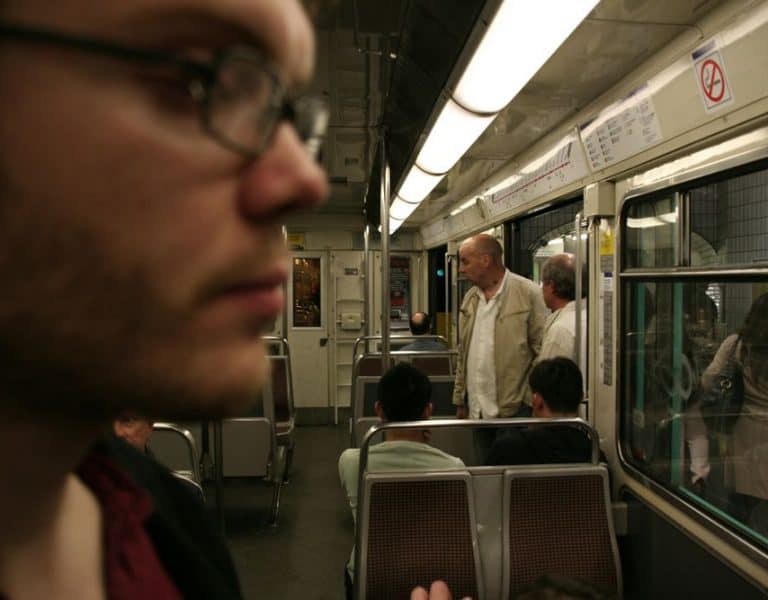
Damien Masson is Principal Investigator (PI) for the French component of the project, overseeing research in France. Damien is an Associate Professor in Urban Studies at CY Cergy Paris University.
Damien Masson is Principal Investigator (PI) for the French component of the project, overseeing research in France. Damien is an Associate Professor in Urban Studies at CY Cergy Paris University, researcher at the MRTE laboratory, France, and co-director of the International Ambiances Network. His previous research has focused on sonic ambiances of public transport and on the relationship between ambiances and mobility. His current research concerns the ambient dimensions of security and safety policies in urban areas, and the atmospheres of “post-terror” in cities that have experienced terrorist attacks. This involves developing new research methods that aim to cross micro-spatial approaches, social encounters and sensory phenomena. The contributions of his recent research consist in articulating the social, cultural and political dimensions of urban spaces to the sensory and the ambient.
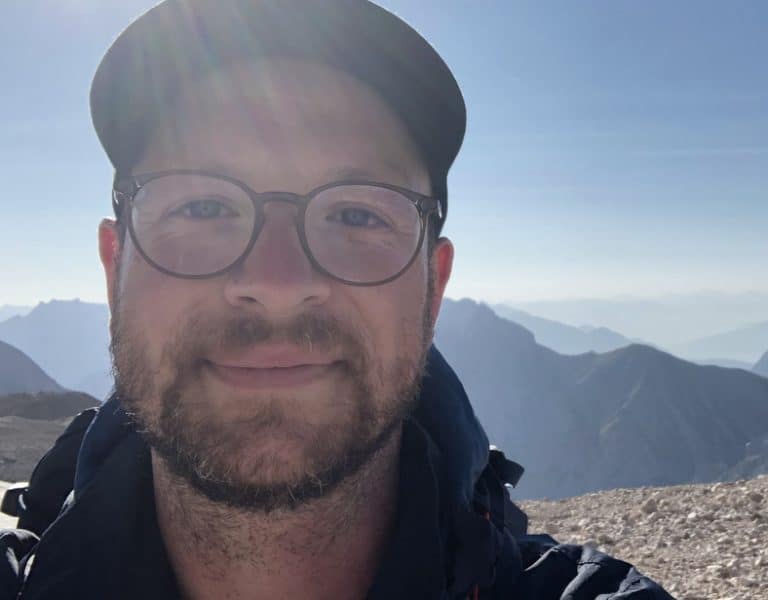
Simon Runkel is Principal Investigator (PI) for the German component of the project, overseeing research in Germany. He is a Junior Professor for Social Geography at Friedrich-Schiller-Universität Jena.
Simon Runkel is Principal Investigator (PI) for the German component of the project, overseeing research in Germany. Simon is a Junior Professor for Social Geography (Tenure Track) at Friedrich-Schiller-Universität Jena. Until 2019, he worked as a research fellow at the Chair for Human Geography at the Department for Geography in Heidelberg. Simon studied Geography, Peace and Conflict Studies, Psychology and Art History at the University of Marburg, the University of California in Los Angeles and the University of Bonn. Before his role as a research fellow in Heidelberg, Simon held research positions at the Department for Geography in Bonn and at the Institute for Media Research at the University of Siegen, and he has many years of experience working in a private consulting firm in Bonn. His research focuses on geographies of security and risk with special regard to crowds, socio-spatial relations and collectivities and the history of geographic thought. He is the author of various academic papers covering a wide range of topics. He has a passion for books, hiking, art and theology.

Paul Simpson is an Associate Professor of Human Geography at the University of Plymouth and Co-Investigator (Co-I) for the UK component of the project.
Paul Simpson is Co-Investigator (Co-I) for the UK component of the project. Paul is Associate Professor of Human Geography at the University of Plymouth where he is Co-leader of The Centre for Research in Environment and Society. His research focuses on the everyday life of urban spaces and often proceeds through a combination of ethnographic research and engagements with non-representational theories and post-phenomenological philosophies. He has just written a book on Non-representational Theory and is now working on a second titled Co-Existence: Spacings, Dispositions, and Being with Others. In his spare time Paul is a 4-handicap golfer, avid guitar player, and has recently discovered a love of buildings guitar effects pedals.

Carrie Ann Benjamin is a Postdoctoral Research Fellow in the School of Geography, Earth and Environmental Sciences at the University of Birmingham.
Carrie Ann Benjamin is a Postdoctoral Research Fellow in the School of Geography, Earth and Environmental Sciences at the University of Birmingham. She holds a PhD in Anthropology from SOAS (2017) and has previously worked a Leverhulme Early Career Fellow in the Department of Sociology at the University of Warwick (2018-2021) and a Research and Administrative Assistant for the SOAS Centre for Migration and Diaspora Studies (2015-2018). Her research investigates the role of public space in the production of belonging, difference, and dis/comfort in cities. As an urban anthropologist, she is particularly interested in multisensory ethnography and the use of walking as a research method and creative practice. Her previous research explored the relationship between whiteness, racism, and gentrification in Paris. In her spare time, Carrie enjoys mudlarking, wandering around London, and cooking unnecessarily elaborate meals for friends.
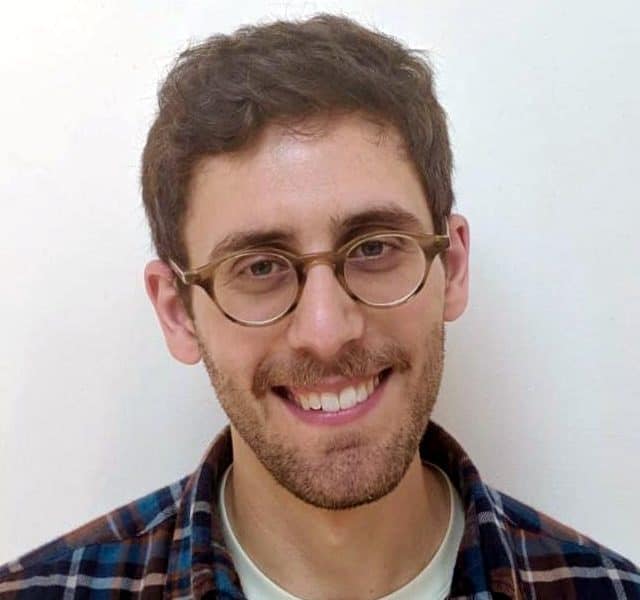
Samuel Berlin is a Postdoctoral Research Fellow for the UK component of the project based at the University of Plymouth.
Samuel Berlin is a Postdoctoral Research Fellow for the UK component of the project based at the University of Plymouth. He completed his PhD in Human Geography at the University of Bristol in 2021, and holds a BA in Chinese and Geography from SOAS and King’s College London and an MSc in Human Geography (Society and Space) from the University of Bristol. Sam is particularly interested in using affect and non-representational theories to create fresh approaches to classic issues in Geography and the social sciences more broadly, including issues of subjectivity and difference, space and place, politics and ethics, and memory and anticipation. The subject areas of his work span topics from everyday class politics in a Chinese market street to the politics and ethics of queer and trans embodiments. Sam lived in China before returning to academia, most recently working as a Chinese-English translator.
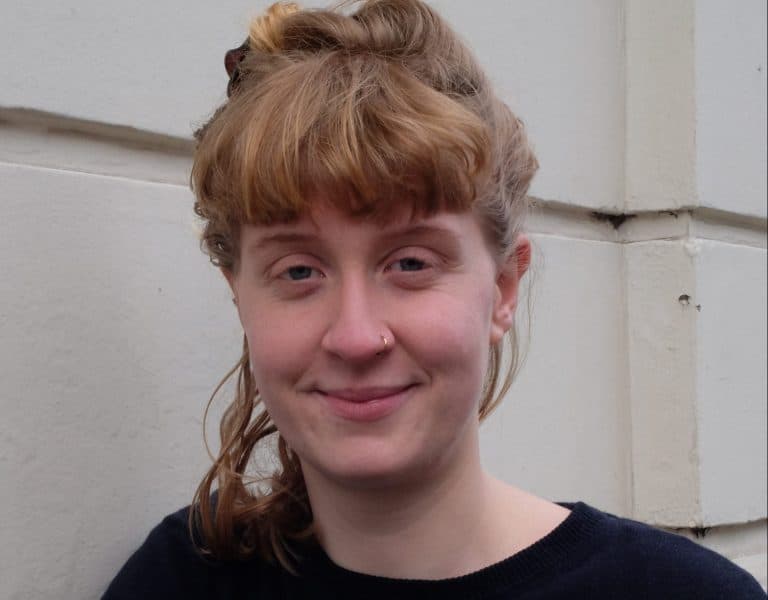
Katharina Ciax is a research assistant in the German component of the project and is conducting qualitative field research in Berlin.
Katharina Ciax is a research assistant in the German component of the project and is conducting qualitative field research in Berlin. She is a Ph.D. candidate in social geography at the Friedrich-Schiller-University in Jena and studied sociology and conflict and development at the University of Duisburg-Essen, University of Bielefeld, and Ghent University. Her research interests focus on urban space, structures and norms of security, and feminist theory. Additionally, Katha is a member of the Klo:lektiv, a research network that engages academically and socio-politically with geographies of necessity and public toilets. She splits her time between Jena, where she likes to hike in the mountains and Ghent and has an activist passion for helping to find and create spaces of belonging in the city, taking the shape of socio-cultural centers.

Angeliki Drongiti is a Postdoctoral Research Fellow for the French component of the project.
Angeliki Drongiti is a Postdoctoral Research Fellow for the French component of the project. She completed her PhD in Sociology at the Université Paris 8 in 2019. Her doctoral research focused on suicide during compulsory service in Greece combining theory from the sociology of the army, the sociology of suicide, and feminist and gender studies. Her work interrogates the impacts of institutional forces on individuals and in particular on suicidal behaviour while proposing a critical non-psycho-centric approach to suicide. Angeliki is particularly interested in feminist analysis of war, armies and militarisation, offering critical perspective on military institutions and their effects in civil society. Since 2011, she has been teaching sociology courses at multiple universities and institutions as a teacher’s assistant and as teaching fellow. She is currently working on several individual and group publications on armed forces, masculinity and sexuality. Angeliki enjoys all kinds of socialising, especially when it includes singing and dancing, and she loves to travel.

Camille Gosselin is associated with the French research team and is in particular involved in carrying out interviews and ethnographies in the second phase of the research. She joined the Institut Paris Region in 2012.
Camille Gosselin holds a master’s in Territorial Strategy and Public Policy from the Paris School of Urban Planning. She is associated with the French research team and is in particular involved in carrying out interviews and ethnographies in the second phase of the research. She joined the Institut Paris Region in 2012 where she is in charge of studies on the links between urban planning and public safety and crime prevention issues, within the Prevention and Security department. Her latest work focuses on the development of security technologies (predictive policing, intelligent CCTV, facial recognition, etc.) and the many legal, technical and ethical issues they raise.
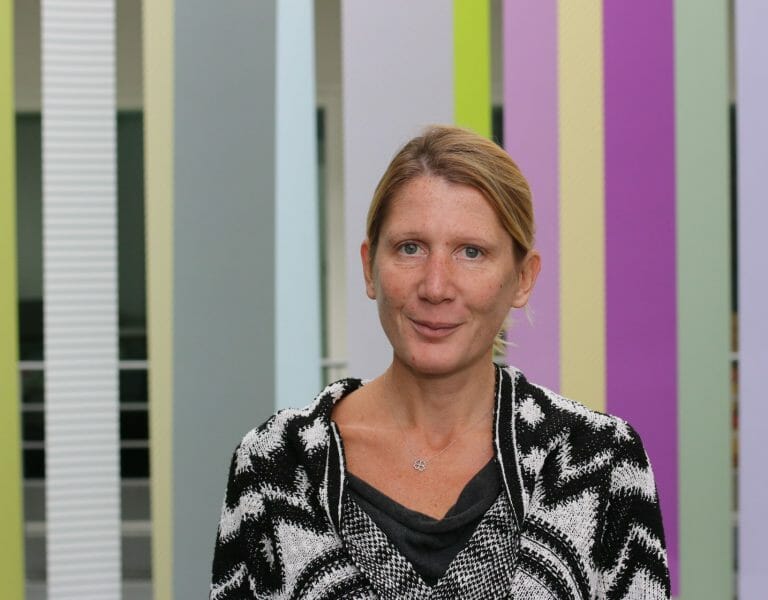
Hélène Heurtel is a statistician on the French research team. She is involved with writing and analysing the survey for the first phase of the project.
Hélène Heurtel is a statistician who holds a master’s in Science and Technology in Computer Science and Statistics Applied to the Human Sciences from the Université Paris 5. As a part of the French research team, she is involved with writing and analysing the survey for the first phase of the project. Hélène has worked as a senior researcher at the Institut Paris Region within the prevention and security mission since 2015. She coordinates the Victimation et sentiment d’insécurité en Île-de-France (Victimization and Feelings of Insecurity in Île de France) survey, which is carried out every two years among more than 10,000 people.

Virginie Linder is a member of the French research team and is responsible for evaluating, through the prism of legal analysis, the impact of political discourse and security responses by public authorities on urban atmospheres.
Virginie Linder is a lecturer at CY Cergy Paris Université and a research associate at the MRTE laboratory. She holds a PhD in public law. Her PhD work examined the contribution of multilateral development banks to the elaboration of environmental protection modalities through development aid programmes. Virginie’s current research focuses more specifically on the interplay of actors and the resilience of communities at the crossroads of urban planning law and environmental law. As a member of the French research team, she is responsible for evaluating, through the prism of legal analysis, the impact of political discourse and security responses by public authorities on urban atmospheres.
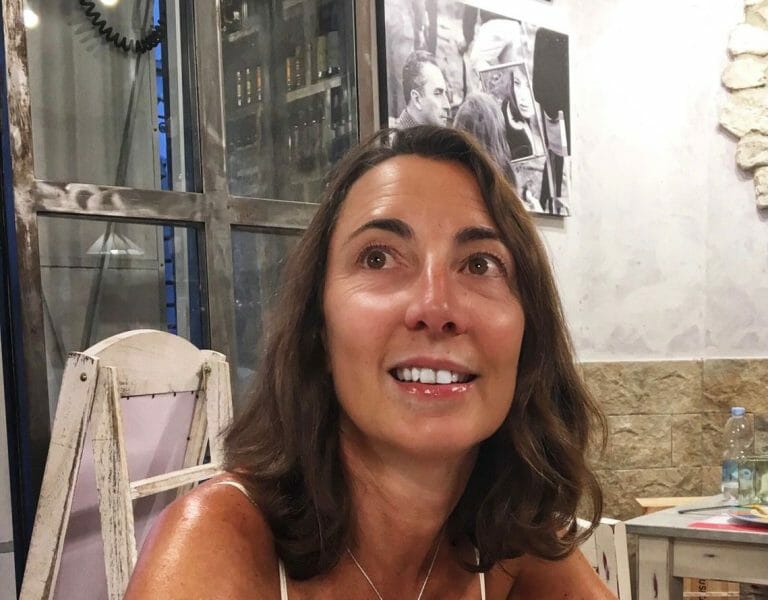
Rachel Thomas is a Research Director at CNRS Laboratory Ambiances, Architectures, Urbanités.
Rachel Thomas is a Research Director at CNRS Laboratory Ambiances, Architectures, Urbanités (CNRS/National Superior Schools of Architecture of Grenoble & Nantes/ECN). She is accredited to supervise research (HDR) in human and social sciences and in urban studies. Her current research focuses on ambiences and their evolution in the production of urban critique, with “the urban” defined as the way the city, as designed and planned, organises public life and environments. Her work questions the importance of ambiences to standardising and disturbing public conduct, enhancing vulnerability, and reproducing exclusions. In this way, her work opens up the political dimensions of urban ambiances. To this end, she coordinates the research group Ambiances urbaines, critique, politique (“Urban atmospheres, critique, politics”).